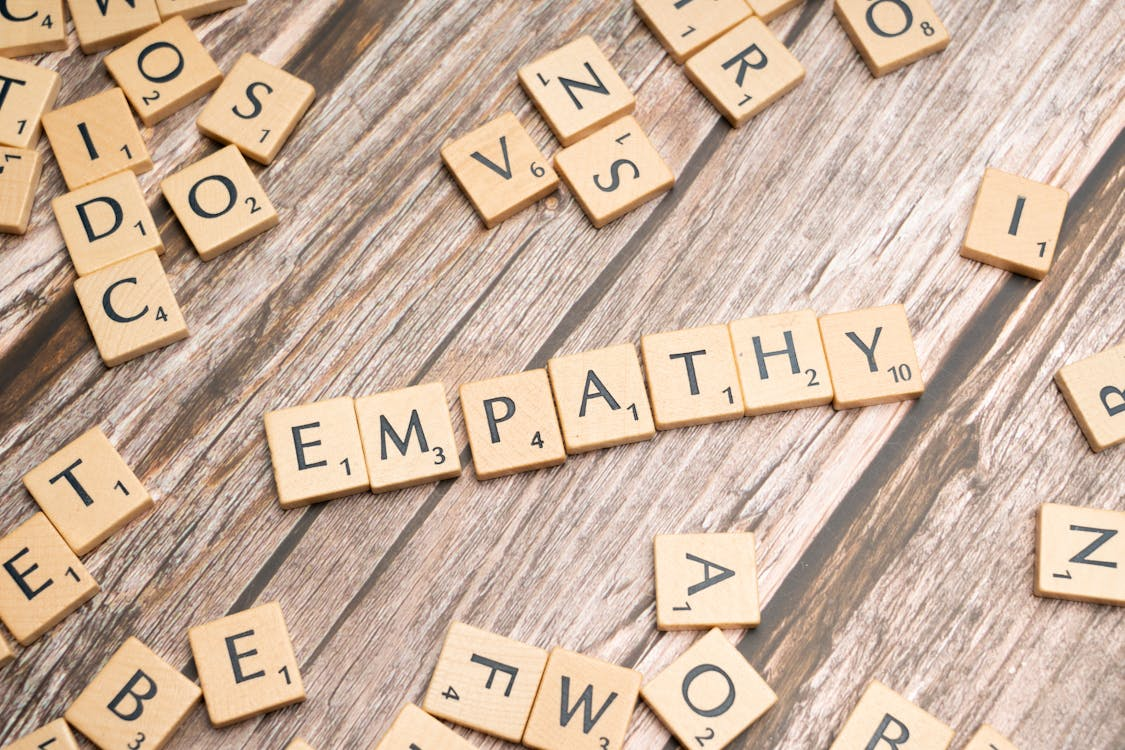What is an IEP and How Do You Know if Your Child Needs One for School?

Intro
Are you wondering if your child needs special education services or an Individualized Education Program (IEP) or how children obtain an IEP? In order to qualify for an IEP, your child needs to receive an evaluation in school (or at home if your child has not started school yet or attends homeschool or cyber school). Depending on your child’s specific needs, the evaluation could be conducted by one or all of the following professionals: a school psychologist, a speech/language pathologist, an occupational therapist, a physical therapist, or a vision or hearing specialist. If your child is of school age, the parent or school team can request the evaluation. If the school team requests it, you will be contacted to sign a permission form to let the evaluation begin.

Recommended Artilce: What Does the Research Say About Homeschooling?
FYI: An (IEP) will outline the specific goals your child will be working on and what accommodations/modifications will be provided for him/her. Children under three who qualify for services receive an Individual Family Service Plan (IFSP) which will also outline the goals and services the child will be receiving.
If your child has not started school yet and you are concerned about his/her development in regard to language/communication, fine-motor skills (e.g., picking up small items, feeding oneself), gross motor skills (sitting up, crawling, walking), social-emotional skills, behavior, or any other area, talk to your child’s doctor. He can give you information for how to get your child evaluated for free to determine if he/she needs special education/early intervention services. You can also contact your county to find out how to get a free evaluation. If you have concerns, do not wait. Research shows that early intervention makes a positive impact on child development.
If your child is school age and you think he/she may have a disability and need special education services, make a request for an evaluation in writing and give it to the school principal or director of special education. If your child is homeschooled, you should still contact your school district if you want an evaluation. For cyber school students, you can request the evaluation directly from the cyber school.
Recommended Article: What is Cyber School Like?
It is important to know that your child will only qualify for an IEP if the school professionals determine that he/she has a disability and that the disability is significantly impacting his/her educational performance. Even if your child is diagnosed with a condition or disability by a private doctor, the school does not have to come to the same conclusion. It is very unlikely that your child will receive an IEP if he/she does not have a history or pattern of academic, behavioral, and/or social difficulties in school. Some exceptions may apply. For instance, a child with speech/language needs may qualify for speech/language therapy even if there is not an adverse affect on educational performance.
FYI: According to the Individuals with Disabilities Education Act (IDEA), a student does not have to be failing his/her classes to be eligible for an IEP.
Keep in mind that special education does not always mean a separate classroom with fewer students. Many children receive support from a special education teacher or related service provider (e.g., speech therapist, occupational therapist) while remaining in a general education classroom. The needs of the child determine the type of services he/she will receive.
Related Article:21 School Accommodations are Available for Children with Special Needs?
How do Professionals Determine Whether or Not Your Child Needs an IEP/IFSP?
Children who receive special education services meet criteria for at least one disability under the Individuals with Disabilities Education Act (IDEA). The professionals who evaluate your child will determine if he/she meets this criteria. Once it is established that your child has a disability, the professionals need to determine whether your child’s disability impacts his/her educational performance to a significant degree.
The definition of disability differs according to the age group.
Birth through 3
For infants and toddlers (children under three), diagnostic procedures conducted by professionals determine whether the child needs early intervention services. According to IDEA, a child under three is eligible for early intervention if he/she shows developmental delays in one of the following areas:
- cognitive development
- physical development
- communication development
- social or emotional development
- adaptive development
or has a diagnosed physical or mental condition (autism, cerebral palsy, Downs Syndrome, etc.) that has a high probability of resulting in developmental delay.
Early intervention services may also include, if a state chooses, children under three years of age who would be at risk of experiencing a significant developmental delay if services were not provided.
Ages 3 through 21
For children and youth, ages 3 through 21, IDEA defines 14 different disability categories under which a child may be eligible for special education services. Below you will find these 14 categories and their IDEA definition
Autism
Autism mean a developmental disability significantly affecting verbal and nonverbal communication and social interaction, generally evident before age three, that adversely affects a child’s educational performance. Other characteristics often associated with autism are engagement in repetitive activities and stereotyped movements, resistance to environmental change or change in daily routines, and unusual responses to sensory experiences.”
Related Articles:
15 Behavior Strategies to Help Children with Autism
12 Ways Schools Can Support Your Child on the Autism Spectrum
Deafness
“Deafness means a hearing impairment that is so severe that the child is impaired in processing linguistic information through hearing, with or without amplification that adversely affects a child’s educational performance.”
“Deaf-blindness means concomitant hearing and visual impairments, the combination of which causes such severe communication and other developmental and educational needs that they cannot be accommodated in special education programs solely for children with deafness or children with blindness.”
Developmental Delay
“Children from birth to age three (under IDEA Part C) and children from ages three through nine (under IDEA Part B), the term developmental delay, as defined by each State, means a delay in one or more of the following areas: physical development; cognitive development; communication; social or emotional development; or adaptive development.” Developmental Delay is not recognized in some states for children over age three.
Emotional Disturbance
“Emotional disturbance means a condition exhibiting one or more of the following characteristics over a long period of time and to a marked degree that adversely affects a child’s educational performance:
- An inability to learn that cannot be explained by intellectual, sensory, or health factors.
- An inability to build or maintain satisfactory interpersonal relationships with peers and teachers.
- Inappropriate types of behavior or feelings under normal circumstances.
- A general pervasive mood of unhappiness or depression.
- A tendency to develop physical symptoms or fears associated with personal or school problems.”
Hearing Impairment
“Hearing impairment means an impairment in hearing, whether permanent or fluctuating, that adversely affects a child’s educational performance but that is not included under the definition of deafness in this section.”
Intellectual Disability
Intellectual disability means an IQ below 70, “existing concurrently with deficits in adaptive behavior and manifested during the developmental period, that adversely affects a child’s educational performance.”
Related Article:What is an Intellectual Disability? (with printable milestone checklists)
Multiple Disabilities
“Multiple disabilities means concomitant impairments (such as intellectual disability-blindness or intellectual disability-orthopedic impairment), the combination of which causes such severe educational needs that they cannot be accommodated in special education programs solely for one of the impairments. Multiple disabilities does not include deaf-blindness.”
Orthopedic Impairment
“Orthopedic impairment means a severe orthopedic impairment that adversely affects a child’s educational performance. The term includes impairments caused by a congenital anomaly, impairments caused by disease (e.g., poliomyelitis, bone tuberculosis), and impairments from other causes (e.g., cerebral palsy, amputations, and fractures or burns that cause contractures).”
Other Health Impairment (OHI)
“Other health impairment means having limited strength, vitality, or alertness, including a heightened alertness to environmental stimuli, that results in limited alertness with respect to the educational environment, that:
- Is due to chronic or acute health problems such as asthma, attention deficit hyperactivity disorder, diabetes, epilepsy, a heart condition, hemophilia, lead poisoning, leukemia, nephritis, rheumatic fever, sickle cell anemia, and Tourette syndrome
- Adversely affects a child’s educational performance.”
Related Articles:
What Are the Symptoms of ADHD and How Can You Help?
12 Effective Strategies for Children with ADHD
Specific Learning Disability (SLD)
“Specific learning disability means a disorder in one or more of the basic psychological processes involved in understanding or in using language, spoken or written, that may manifest itself in the imperfect ability to listen, think, speak, read, write, spell, or to do mathematical calculations, including conditions such as perceptual disabilities, brain injury, minimal brain dysfunction, dyslexia, and developmental aphasia.
Disorders not included. Specific learning disability does not include learning problems that are primarily the result of visual, hearing, or motor disabilities, of intellectual disabilities, of emotional disturbance, or of environmental, cultural, or economic disadvantage.”
Related Article: Signs of a Learning Disability and How to Help Your Child (with interactive checklist)
Speech or Language Impairment
Speech or language impairment means a communication disorder, such as stuttering, impaired articulation (pronunciation of words), a language impairment (e.g., difficulty understanding thoughts, ideas, directions, etc. and/or difficulty expressing wants, needs, or sharing thoughts or ideas), or a voice impairment, that adversely affects a child’s educational performance.
Traumatic Brain Injury
Traumatic brain injury means an acquired injury to the brain caused by an external physical force, resulting in total or partial functional disability or psychosocial impairment, or both, that adversely affects a child’s educational performance. Traumatic brain injury applies to open or closed head injuries resulting in impairments in one or more areas, such as cognition; language; memory; attention; reasoning; abstract thinking; judgment; problem-solving; sensory, perceptual, and motor abilities; psychosocial behavior; physical functions; information processing; and speech. Traumatic brain injury does not apply to brain injuries that are congenital or degenerative, or to brain injuries induced by birth trauma.
Visual Impairment (including blindness)
Visual impairment including blindness means an impairment in vision that, even with correction, adversely affects a child’s educational performance. The term includes both partial sight and blindness.
Ages 3 Through 9
According to IDEA, states and local educational agencies (LEAs) may also use the term “developmental delay” for children 3 through 9 (rather than using criteria from one of the 14 disabilities defined above) if the child experiences developmental delays in one or more of the following areas:
- physical development;
- cognitive development;
- communication development;
- social or emotional development; or
- adaptive development;
and, because of the developmental delays, need special education and related services.
Here are four important regulations regarding the term, developmental delay:
- “A State that adopts a definition of developmental delay determines whether the term applies to children aged three through nine, or to a subset of that age range (e.g., ages three through five).”
- “A State may not require an LEA to adopt and use the term developmental delay for any children within its jurisdiction.”
- “If an LEA uses the term developmental delay for children, the LEA must conform to both the state’s definition of that term and to the age range that has been adopted by the State.”
- “If a State does not adopt the term developmental delay, an LEA may not independently use that term as a basis for establishing a child’s eligibility under this part.”
Additional Information
According to IDEA, a child cannot be identified as having a disability if the primary reason for academic difficulties is due to one of the following:
- the child has a lack of instruction in math or reading (e.g., the child had so many absences that he/she didn’t have a chance to learn the material)
- the child does not speak or understand English well.
If an evaluation indicates that your child has a disability and is in need of an IEP/IFSP, you as the parent have the right to accept or reject these services.
Additionally, if your child has a documented disability from a medical/mental health professional (outside of school), or if the school has determined that your child meets criteria for an educational disability such as Other Health Impairment (see definition above), they may be entitled to a 504 plan. A 504 plan is for students who need accommodations due to their disability (such as extended time to complete assignments or breaks during the day), but whose needs are not so great that they warrant an IEP/special education services.
Related Article: Glossary of Education Terms for Parents
Resources
1) Center for Parent Information and Resources (state-by-state info on disabilities, IEP’s, special education, etc.)
2) National Resources for Children and Youth with Disabilities
3) Disability Resources: Where to Find Help in Your State

Rachel Wise is the author and founder of Education and Behavior. Rachel created Education and Behavior in 2014 for adults to have an easy way to access research-based information to support children in the areas of learning, behavior, and social-emotional development. As a survivor of abuse, neglect, and bullying, Rachel slipped through the cracks of her school and community. Education and Behavior hopes to play a role in preventing that from happening to other children. Rachel is also the author of Building Confidence and Improving Behavior in Children: A Guide for Parents and Teachers.
“Children do best when there is consistency within and across settings (i.e., home, school, community). Education and Behavior allows us to maintain that consistency.”







